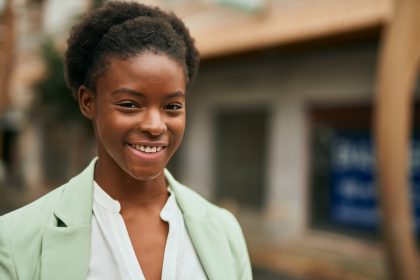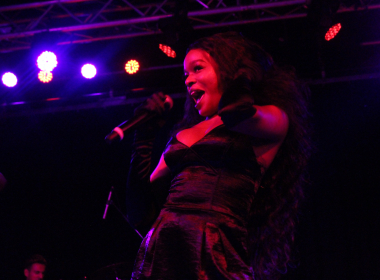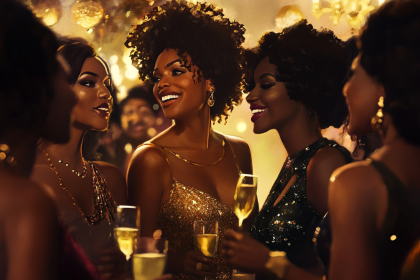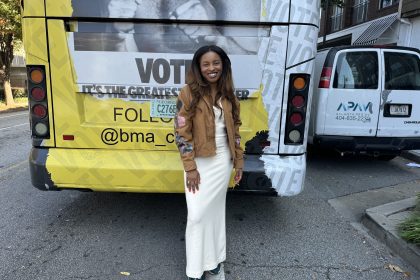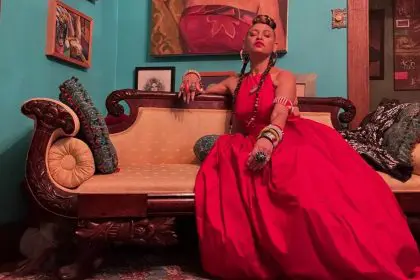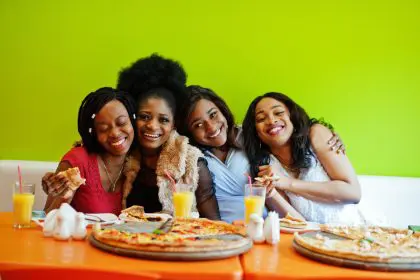
Former Oklahoma City police officer Daniel Holtzclaw has been found guilty of raping and assaulting 13 Black women in the neighborhood he regularly patrolled. The 29-year old was found guilty of 18 of the total 36 charges against him, including four of the six counts of first-degree rape. Other charges against him included indecent exposure, sexual battery and forcible oral rape. Holtzclaw wept openly in court as the verdict was read and social media reacted with a sigh of collective relief that justice had been served for several of his victims; but there was also the somber resignation that comes when one recognizes that surface justice for a horrific crime only reveals deeper, wider evils. Holtzclaw used the fact that he was an officer of the law to both coerce victims and to silence them with intimidation — and he targeted women whose credibility would be viewed as “shaky.” The crime is another example of the well-documented infractions that occur by police in communities of color, but also affirms that certain people in these communities are uniquely vulnerable to such predators. Not only is Holtzclaw a rapist, but he chose women who he assumed would be vulnerable because society valued them the least: poor Black women.
Holtzclaw will have to pay for his crimes. I wanted to simply feel happy that some semblance of justice had been served, to take satisfaction in knowing that a serial rapist who’d preyed on a community would be going to prison. But I found myself feeling frustrated; it was troubling that this case had gotten so little attention from the mainstream media and on social media sites like Facebook. With so much scrutiny on police officer misconduct and abuse of power, the story of a cop raping 13 women barely registered on our cultural radar. Why wasn’t the whole country fixated on this trial? Why wasn’t the whole community?
For the past two years, I’ve watched as crimes against Black people galvanized our community and sparked national discussion. From Mike Brown to Eric Garner to the murder of Tyshawn Lee, the victims of those crimes tended to be male. There has always been a charge of protection and guidance for “young, Black males.” We center the struggle of Black men in a way that suggests it defines the struggle of Blackness entirely and indicates that Black womanhood is peripheral. The attention given to the death of Sandra Bland was significant, but pales in comparison to the outcry against the death of Freddie Gray. The 2014 trial of Theodore Wafer, a White man who shot a 19-year old Black woman named Renisha McBride in the face with a shotgun when she knocked on his door seeking help after a car accident, also got relatively little attention from the media or the community. If not for Black feminists on Twitter, the case may not have even become a national story.
Twitter helped elevate Trayvon Martin and Mike Brown to international stories and the Holtzclaw case (as well as Bland and McBride) was also heavily discussed and shared via tweets. But, unlike Martin and Brown, where the story soon caught fire on platforms beyond Twitter, the Holtzclaw case never quite caught the public’s attention in the same way. Do poor Black women’s lives matter? To anyone?
Facebook is not the sole barometer by which I judge the general public’s attentions and tastes, but that doesn’t mean it’s not a pertinent indicator, depending on who your Facebook friends are, of how people view their world and what they care most about. Almost daily, my news feed is a tidal wave of memes — many of them religious, many of them funny, but most of them are topical. These are the kinds of memes that offer little nuggets of life advice or share little-known history facts; but the advice is usually horribly slanted and the history can be entirely inaccurate. And many of these memes speak specifically to Black women and how they can better serve and accommodate Black men. But I watched Black men react with hostility when it was suggested that our dismissal and subjugation of Black women makes it hypocritical for us to pretend we stand with them when an outside evil surfaces.In the wake of Holtzclaw’s conviction, I saw Black women asking why didn’t Black men care about this case, and why we celebrated attitudes that endorse the contempt of our women — and I saw so many Black men respond with what could be described, at best, as self-absorbed defensiveness and at worst, as vitriol and spite.
So in the wake of this verdict and the relative indifference to the case, I’ve thought about the culture. I thought about all of the memes that I’ve seen admonishing “thots” and “h–s” or all of the memes that I’ve seen that criticize Black women for not standing with Black men in the fight against racism. I thought about how many people criticized the “pull your pants up” rhetoric that was used to justify police killings of young Black men and how so many of the same people offer “look at how she’s dressed” as a response to rape victims. I thought about all of the sisters I watched lead marches and rallies and raise awareness for the Trayvon Martins and Mike Browns of the world. I thought about how I’d heard so little discussion of Holtzclaw among brothers. And I thought about how this sick, twisted police officer thought that, in focusing on poor Black female victims, he had discovered the perfect target for his crimes.
Black women are demanding that Black men recognize the ways in which we contribute to their oppression. Our response as Black men can’t be defensiveness, ridicule or contempt if we claim to want solidarity in our communities and progress for our people. We can’t advise Black women to not “give up” on Black men while also harping on what makes Black women “unwifeable.” We ask that our women be patient with us — with our demeaning lyrics, with our commitment phobias, with our financial struggles and double standards — and yet we spew nothing but contempt at the sisters who we feel don’t meet some imaginary standard that we cling to like some patriarchal life preserver.
There are those who feel that it’s “unfair” for Black women to criticize Black men because “we all have things we should change.” There are all kinds of people who are guilty of all kinds of transgressions against each other, but we can’t pretend that the societal and cultural power that men hold over women is inconsequential. You can say things like “men can be hoes, too” and it sounds like you’re being fair — until you realize that no matter how many times you say that, our society punishes women in a way that it doesn’t punish men when it comes to sex and sexuality. As a man, you have to decide if you contribute to that and if you’re willing to change. The fragility of the male ego means that every man that’s been hurt feels justified in embracing and spreading rampant misogyny. But abusive women aren’t sending their boyfriends to the emergency room and morgue at the same rate that abuse men are sending their women there. For every wounded man recovering from some woman who exploited or betrayed him or both, there are probably 10 women currently recovering from abusive, disrespectful, dishonest and opportunistic men. And men are given more wiggle room to be abusive, disrespectful and opportunistic. But these hurt guys would want you to believe that their hateful view of women is justified because they’ve been “done wrong” in some personal incident. You don’t hate women because of what happened to you, you hate women because you’re a misogynist — the incident just gave you enough validation to wallow in your contempt.
Applaud Holtzclaw’s guilty verdict, but also think about the applause we give R. Kelly, Dr. Dre and Floyd Mayweather. Ask yourself if you care about standing with Black women. If you love Black women, show it more than you say it. And showing it means that you don’t silence sisters who call out oppressive forces, even if those oppressive forces are manifest in your fellow Black men. Because I want my sister to be as free and true to herself as I, but I can’t help facilitate that if I’m preoccupied with preserving my own ego. Most of us “good guys” are just recovering misogynists who are unlearning a massive amount of woman-hating conditioning, so understand that the struggle for Black women isn’t over just because you decided to write a poem celebrating their beauty or happened to read some bell hooks. Shut up, sit down and listen to your women.
You may learn something.

